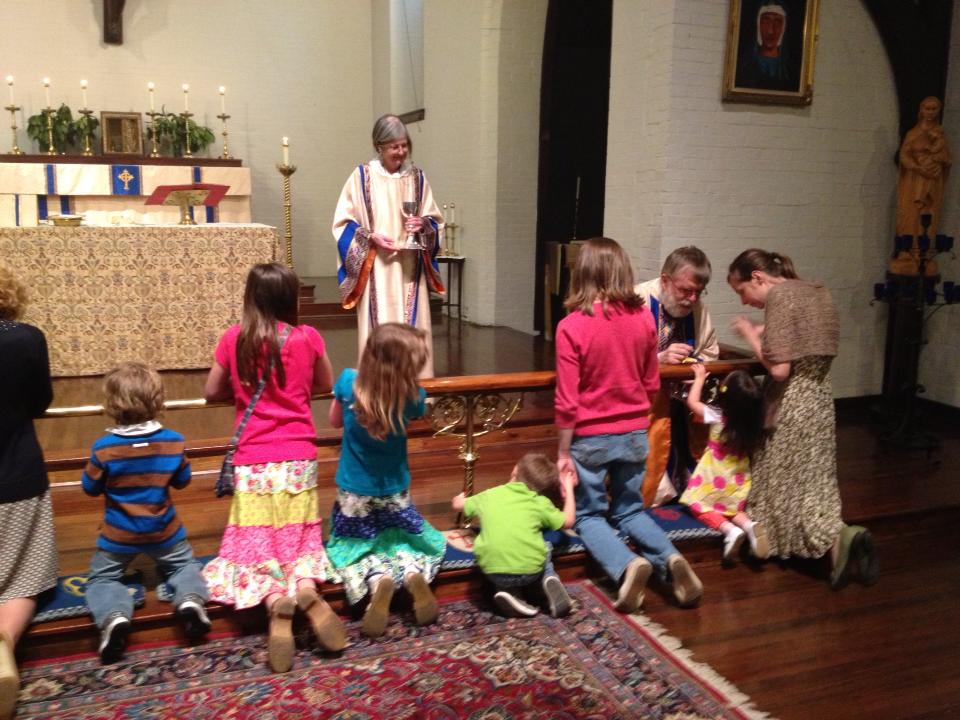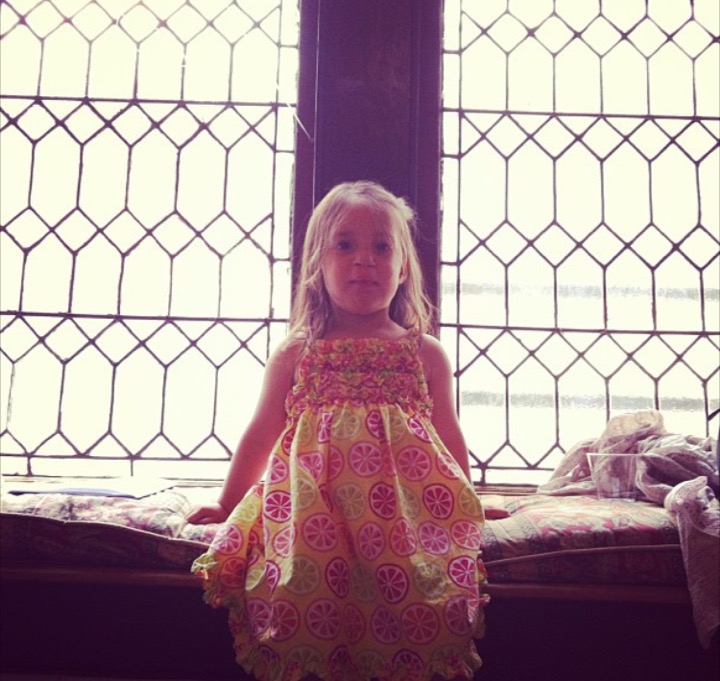
Religion was not a part of my upbringing. Like many Berkeley, California moms my mother could be described as “spiritual” rather than religious. She took bits and pieces from our Japanese heritage and mixed them with Mexican Catholicism and Caribbean Santaria. We had an ambiguous alter in our home with rice, whisky, incense and pictures of our ancestors, but we never talked about it. I kept up this non-traditional tradition through my twenties.
When I met my wife she was going through her own religious awakening. She had started attending Episcopal services in high school, largely unbeknown to her parents. I still don’t totally understand why she started. She says she found comfort in the routine and the message. While we were dating I went with her at times, and encouraged her to go on her own when I didn’t feel up for it. I always reminded her that she felt better when she went. I attended her confirmation, and at the time had no intent to join the church myself, or even attend regularly. We were still dating and I wasn’t fully committed to her long term, let alone the church.

Things changed when my mom died, but it wasn’t the idea of death that turned me to religion. My mother’s death touched off a feud within my family that had been simmering for years. My mother’s siblings and friends, people I expected to support me during this time, instead focused their pain and anger about the situation on me. They squabbled over my mother’s “estate” in as much as it could be considered one, no more than a few thousand dollars and a small house. But they behaved as though it were a fortune. The acrimony and distrust were tearing at me. I had never felt more stressed or persecuted in my life, and I had changed schools every year from kindergarten through Jr. High. I felt alone, but mostly I was angry.
I was angry that my mother had been taken from me when she was just 54. I was angry that she hadn’t finished getting her affairs in order before she died. I was angry that everyone had been so insistent on the power of positivity that my mom and I had never been allowed to have those deep end of life conversations that I longed to have. I was hurt that my family distrusted me as the executor and trustee for my 17-year-old brother. I didn’t know what to do.
During this time I left my career in Washington D.C. and moved home to California to help care for my brother. My wife chose a church nearby and for lack of anything else I started attending more regularly. I found that every week the sermons spoke to something I needed. They weren’t just about God or Jesus or what the Bible said we should think. They were about how we could live better lives and be better, happier people. A few of them were about forgiveness. The rector talked about how to let go of resentments. She told us how we could try to understand the people who hurt us. She gave me a blueprint to follow to move past the hurt my family was causing. Beyond that, her words helped me remain open to having a relationship with them. After I’d spent a lifetime banishing people who had hurt me, it was permission to let go of the grudges I was building. It was freedom.
After that I became more interested and involved in the church. I had found a place where the message of the Bible was about love and acceptance, not the hate and vitriol associated with the loudest voices of the religious right. I started confirmation classes. My wife and I were married, and held our reception in our home parish. I was confirmed on the same day my son was baptized.

I’ll confess, I don’t believe in all of it. I honestly don’t know if there’s a God, let alone one true God. I don’t believe in all the miracles. I don’t think the bread and wine actually become flesh and blood. I believe that we should be good people in the world for the sake of being good, not because of any reward in the afterlife (if there is one). Still, I’ve taught Sunday school. I am raising my children in the church. Many of my fellow Christians would say these thoughts mean I may as well not bother showing up. What I do believe in is the message and the structure. The primary take away from every service I’ve ever attended is to love everyone. The only action we are compelled towards is to make the world a more peaceful and caring place. Being good in a vacuum can be hard. Having some guidance helps me.
My secular friends, which is most of my friends, like to post memes and articles to social media proposing that you don’t need religion to be a good person. I think that’s true. But when my family is in a time of need I notice that people I hardly know from my church are almost more likely to step up and help than are my non-religious friends. It’s been parishioners who have organized meals for us when we’ve had a birth or death in the family. When my father-in-law died a woman I didn’t recognize knitted my wife a prayer shawl and brought it to our house. The thing is, we have never asked for the help we’ve received, it’s simply materialized when people heard we might need it. This isn’t a knock on my non-religious friends. Rather it acknowledges that being in a church seems to compel people to not just feel sorry for others, but to act. That sense of community has deepened my connection to the church. Finding religion as an adult has been as much about discovering faith people, as about believing in a higher power.
